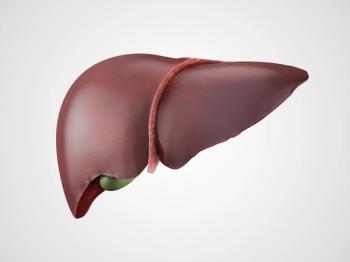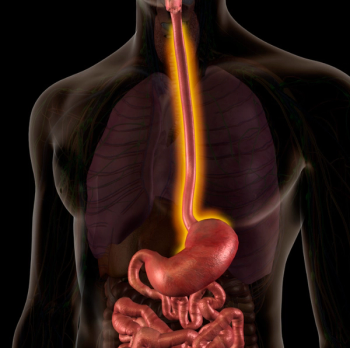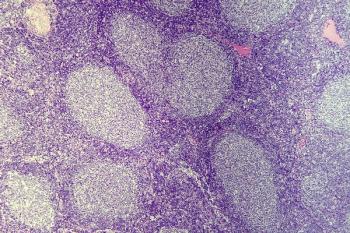
PAX8, a marker for aggressive disease in numerous cancer types, was more highly expressed in Black patients with uterine serous carcinoma.

Your AI-Trained Oncology Knowledge Connection!


PAX8, a marker for aggressive disease in numerous cancer types, was more highly expressed in Black patients with uterine serous carcinoma.

Investigators are evaluating the efficacy and safety of APG-157 for patients with head and neck cancer in a phase 2 clinical trial.

Quadruplet therapy is making a run to be a potential standard of care in frontline multiple myeloma, according to a panel of experts.

Improved overall survival was also noted when atezolizumab plus bevacizumab and FOLFOXIRI were used to treat patients with pMMR tumors.

Brentuximab vedotin plus chemotherapy significantly improved HRQOL in both pediatric and young adult patients with high-risk Hodgkin lymphoma.

Phase 2 data support the National Medical Products Administration’s approval of fulzerasib for those with KRAS G12C–mutated NSCLC in China.

The approval of epcoritamab may impact treatment options in the R/R follicular lymphoma space, according to Tycel Phillips, MD.

The phase 1/2 LINKER-MM1 trial assessed linvoseltamab in relapsed/refractory multiple myeloma, of which the indication has been given a CRL by the FDA.

Neil M. Iyengar, MD, highlights how to best integrate exercise oncology into multidisciplinary care.

The FDA has set a Prescription Drug User Fee Act date of April 21, 2025, for the potential approval of frontline nivolumab/ipilimumab in unresectable HCC.

Krystal Preston, PharmD, BCPS, discussed the use and administration of tislelizumab for patients with resectable or metastatic esophageal squamous cell carcinoma.

Further development of vebreltinib in patients with MET fusions is being considered following results from the phase 2 SPARTA trial.


“The dMMR population, which are patients who have deficiency in their mismatch repair proteins, had the most pronounced impact in PFS, and we’re seeing that trend for prolonged periods of time; we may be curing many of these patients,” said Ritu Salani, MD.

Conditional marketing authorization for epcoritamab in the European Union is based on findings from the phase 1/2 EPCORE NHL-1 trial.

Findings from the MARIPOSA trial support the FDA approval of frontline amivantamab/lazertinib in advanced or metastatic EGFR-mutant NSCLC.

In Japan, liso-cel recently received approval for patients with previously treated relapsed/refractory follicular lymphoma.

The Melanoma Research Alliance mourns the passing of Jeffrey S. Weber, MD, PhD, a pioneer in developing immunotherapy for patients with melanoma.

Investigators focused on the latest advances in the treatment of patients with AML, while prioritizing the use of venetoclax as it has been shown to significantly impact the course of the disease.

Data from the DESTINY-Breast06 trial support the FDA breakthrough therapy designation for T-DXd in HR–positive, HER2-low, or HER2-ultralow breast cancer.

Developers plan to submit a sBLA for tafasitamab in relapsed/refractory follicular lymphoma based on data from the inMIND trial.

Ritu Salani, MD, highlights data from the RUBY trial supporting the FDA approval of dostarlimab/chemotherapy for primary advanced endometrial cancer.


Ritu Salani, MD, discussed investigational endometrial cancer treatment options for patients with varying subtypes of endometrial cancer.


The second interim analysis of the phase 3 RUBY trial found the safety profile was consistent with the first interim analysis and no new deaths due to AEs were observed.


The phase 3 RUBY trial evaluated dostarlimab in combination with carboplatin/paclitaxel in patients with primary advanced or recurrent endometrial cancer.

The FDA has set a Prescription Drug User Fee Act date of February 17, 2025, to approve vimseltinib for patients with tenosynovial giant cell tumor.

Phase 1/2 AUGMENT-101 study results revealed quick and lasting responses for patients with relapsed/refractory KMT2Ar acute leukemia.